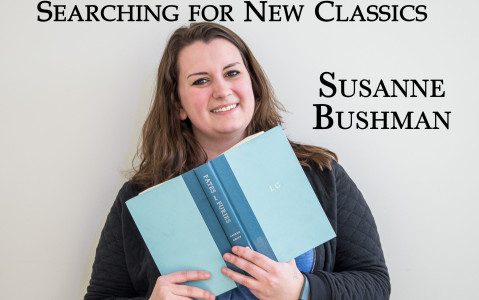Column by Susanne Bushman
bushmans@grinnell.edu

Last summer, my mom coerced me into leading a book club at the local library at which she works. The idea was to try to draw in other young adults by having me lead the group and choose all the books. I wanted to choose only books that I hadn’t read yet (which was somewhat of a mistake, I must admit), so I skimmed lists of recently released books and was excited to see one of my favorite short story writers, Miranda July, had a new book out, entitled “The Last Bad Man.”
While only my best friend of ten years came to the meeting where we discussed this book (and she didn’t like it), it was one my favorite books I read last summer. “The Last Bad Man” follows a very peculiar woman named Cheryl Glickman when she takes in her bosses’ daughter, Clee. She’s worked for years at Open Palm, a women’s ‘self-defense as excursive’ studio, despite having no clear use there. This makes for the perfect situation for her boss to take advantage of her.
It quickly becomes clear to the reader why Clee’s parents want her to live with someone else — she’s lazy, rude and, frankly, unsanitary. She completely messes up Cheryl’s life system, a carefully balanced method of living that only makes sense to her. It includes peeing in cups and eating off dirty dishes, both of which she finds completely rational. Clee is unappreciative and manipulative towards Cheryl, making me cringe at times. Over time Clee becomes so infuriated by Cheryl’s meek disposition that she begins to beat her up.
This is where the story, in classic Miranda July style, really begins to take a turn for the unexpected. These physical altercations become two sided, as Cheryl begins to fight back and, soon, the fights become erotic. Their relationship is strange, and ultimately short lived, but July makes the whole saga impossible to stop reading.
Intertwined with this narrative are other peculiar story lines, such as Cheryl’s crush on older gentleman Phil Bettelheim, and his subsequent relationship with a teenage girl and Cheryl’s belief that babies could be the incarnation of a baby she calls Kubelko Bondy, with whom she has a cosmic bond. These additional oddities join Cheryl and Clee’s relationship to create a compellingly bizarre story.
Though this description might not draw you in, let me assure you that this kind of story deserves your consideration. July’s way of taking a conventional story arc and filling it with characters who are strange, off-kilter and one-of-a-kind makes for a challenging but rewarding piece. Also present are thoughtful portrayals of mental health and sexuality that are perceived as deviant. They never take the center stage; instead, they dance around the edges of the story, present enough to impact the story, but never overwhelming. July crafts a well-balanced story that, while it might cause some raised eyebrows, presents real emotion in real characters. It’s a book that doesn’t flinch but presents life with all of its oddities.
Though “The Last Bad Man” might have been a bit much for a suburban book club, I assure you that, for most Grinnellians, it’s a perfect way to keep your mind engaged all summer.
















































